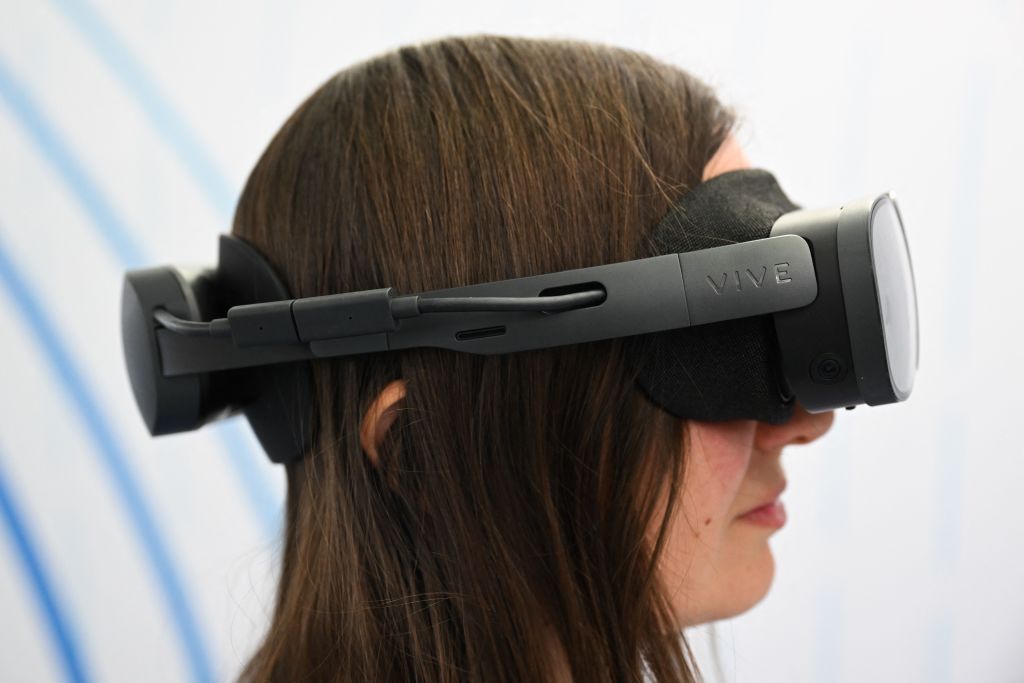Integrating augmented reality (AR) into preoperative care has emerged as a potential solution to mitigate stress and anxiety among surgical patients.
Undergoing surgery can elicit a range of emotions, often accompanied by stress and anxiety. The prospect of undergoing a medical procedure, regardless of its complexity, can trigger unease and apprehension.
The uncertainty surrounding the outcomes, the anticipation of the surgical process itself, and concerns about potential complications contribute to the emotional burden that patients often experience.
The surgical environment itself can be anxiety-inducing. The operating room’s sterile atmosphere, medical equipment, and clinical procedures can evoke a sense of detachment from one’s usual surroundings.
And now, the integration of AR into preoperative care has emerged as a potential solution to mitigate stress and anxiety among surgical patients, according to recent research conducted by the University of Miami.
(Photo : PATRICK T. FALLON/AFP via Getty Images)
A reporter plays a game with the HTC Vive XR Elite headset for both virtual reality (VR) and augmented reality (AR) during the Consumer Electronics Show (CES) in Las Vegas, Nevada, on January 6, 2023.
AR-Based Interventions
According to New Atlas, this study, encompassing 95 patients with an average age of 38 who were scheduled for elective orthopedic procedures, investigated the effects of AR-based interventions on alleviating surgery-related stress.
The trial incorporated two distinct groups: a control group, exposed solely to conventional surgical instructions, and an experimental cohort, which experienced a three-minute AR encounter narrated by the lead surgeon in addition to the standard instructions.
The AR experience, facilitated by a headset that combines real-life surroundings with augmented elements relevant to the hospital and the surgical process, aims to demystify the surgical journey by offering a personalized and interactive insight, effectively addressing the “fear of the unknown” that often accompanies surgery.
In comparison to virtual reality (VR), AR differs in that it enhances the existing reality, allowing users to maintain control of their experience. In VR, the user’s view is entirely simulated, with the surroundings dictated by the virtual environment.
Throughout the patients’ surgical journeys, both groups were assessed for their anxiety levels on four occasions-twice prior to surgery and twice post-surgery. The findings showcased a notable reduction in stress levels within the AR group leading up to the procedure.
Importantly, this decrease persisted following the initial survey, indicating that the impact of the AR-based preoperative preparation was enduring.
Read Also: US Army, Microsoft Partnership Wins $22 Billion Contract to Supply Hololens-Based Augmented Reality Headsets
Further Exploration Needed
It is crucial to note that this particular AR intervention was tailored to patients undergoing the same surgical procedure, under the same surgeon, within the same medical facility.
Further exploration is required to determine if the technology can be effectively adapted to diverse individual settings or if a broader approach can yield comparable stress relief outcomes.
This research falls within a broader context of exploring the utility of augmented reality and virtual reality in the medical field, with applications ranging from medical training to psychological therapy.
In the realm of surgery, these technologies hold promise in minimizing stress and optimizing training, enhancing procedural planning, and promoting patient education.
The findings of the study were published in the journal JAMA Network Open.
Related Article: Washington University Doctors Achieve First-Ever Robotic Liver Transplantation

ⓒ 2023 TECHTIMES.com All rights reserved. Do not reproduce without permission.







